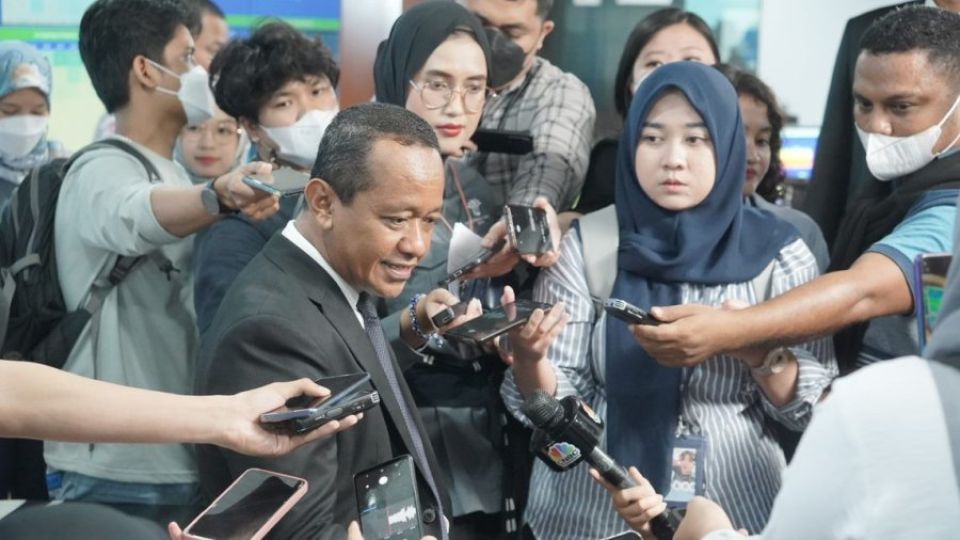July 25, 2023
JAKARTA – The Investment Coordinating Board (BKPM) has announced that two quarters into the year, the country is nearly halfway to its 2023 investment target and has expressed confidence about meeting the full-year goal.
Presenting the latest figures on domestic and foreign investment on Friday, BKPM head Bahlil Lahadalia said the Rp 678.7 trillion (US$45.1 billion) in investment realized in the first half of the year marked a 16.1 percent year-on-year (yoy) increase and accounted for 48.5 percent of this year’s target.
“Investment is at almost 50 percent [of the target now], and it normally peaks in the fourth quarter,” Bahlil told reporters in Jakarta on Friday.
President Joko “Jokowi” Widodo has set this year’s investment target at Rp 1.4 quadrillion, raising the bar from last year’s goal of Rp 1.2 quadrillion.
Bahlil, who is also the investment minister, said Jokowi had set the target to support the goal of 5 percent economic growth this year.
Bahlil reported that all investment numbers had increased from last year’s levels and that global and domestic investor trust in Indonesia “remains”.
Foreign investment rose 17.1 percent yoy to Rp 363.3 trillion in this first half, accounting for 53.3 percent of total investment.
Domestic investment, which makes up the remainder, increased by 15 percent yoy to Rp 315.4 trillion.
“Although foreign investment still accounted for the majority, domestic [investment] grew quite fast,” said Bahlil.
Josua Pardede, the chief economist of publicly listed Bank Permata, told The Jakarta Post on Friday that Indonesia’s investment climate was still relatively favorable.
“The increase of domestic investment growth signals that domestic investors see Indonesia’s economic growth remaining strong going forward,” said Josua.
East Kalimantan, where a megaproject is underway to build Indonesia’s next capital city, placed fifth among all provinces for domestic investment, receiving Rp 22.4 trillion in the January to June period.
Bahlil said some domestic investors would start work on the planned new capital, Nusantara, in September for projects estimated to require total investment of Rp 30 trillion to Rp 40 trillion.
He also revealed that global soccer governing body FIFA had begun construction work on a stadium in Nusantara.
The minister said he had just returned from a trip to China seeking investment for the development of a solar panel industry in Batam, Riau Islands.
“We have some of the world’s biggest reserves of quartz and silica sand. These are the main raw materials for building glass and solar panels,” Bahlil said.
The basic metals sector continues to account for the lion’s share of investment, with Rp 89 trillion, or 13.1 percent of the total investment realized in the first half, followed by transportation, warehousing and telecommunications with Rp 79.1 trillion and mining with Rp 71.4 trillion.
Mineral and metals processing has been attracting significant investment because of the Jokowi administration’s push for downstream industry development.
Holding the world’s largest nickel reserves, a key component in batteries, Indonesia is hoping to capitalize on the electric vehicle (EV) boom.
But the downstream agenda does not stop at nickel. The government is pushing for the domestic processing of other minerals and petrochemicals as well.
Bahlil mentioned a petrochemical facility in Cilegon, Banten, that had received an investment of Rp 60 trillion from South Korean conglomerate Lotte Corporation.
“[The facility] will be operational by the end of 2024,” he said.


